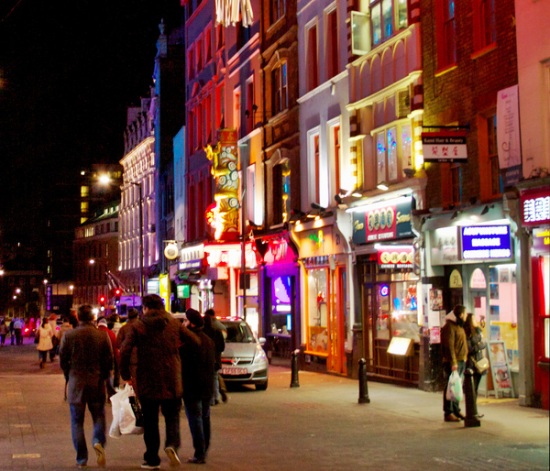Despite being a prime London location, Soho has struggled to attract high levels of investment or global company settlement in the past decade. With a slightly bad reputation and a wealth of sex shops and strip clubs populating the area, it seems that many companies chose to do business in more reputable districts and therefore agents frequently struggled to shift the numerous properties appearing in their books on an almost daily basis.

Now, however, a trend of soaring costs has appeared thanks to the number of celebrity chefs and chain restaurants choosing to inhabit the new foodie favourite. Local experts have now declared that the performance of the district is out-stripping the levels seen in the last boom ten years ago, with vacancy rates and the price of rents bringing Soho back to prosperity.
Dim sum restaurant Ping Pong has recently opened a branch on Frith Street, with the price tag behind the operation rumoured to be in excess of £1 million. Meanwhile, bidding wars for prime locations throughout the district rage on with three or four interested parties at a time battling for the lease on a single building.
Morris Greenberg, of Cedar Green Gilmarc, says; “Soho had lost its appeal for investment but it is back with a vengeance meaning rents and premiums are flying high.
“Units that had been on the market for some time are achieving three to five offers from businesses keen to get in on the act – the area is buzzing and is now the place where entrepreneurs can try out new concepts.
“If they can make it in Soho they can replicate that success around the country and in other capital cities.”
The sudden property boom in Soho is certainly good news for the local economy, with big name brands generating a higher level of both custom and interest to the area. However, market figures do indicate that the rocketing rental figures may not be such good news for start-ups in the area as there is a fair chance they will be priced out of the market.
On Old Compton Street, for example, experts estimate that businesses wishing to open a premises would have to have in excess of £500,000 in order to make this goal possible. Meanwhile, Berwick Street – which is known for its street market and rather bohemian culture – may soon become decidedly more upmarket with interest from celebrity chefs and culinary giants from overseas wishing to gain a foothold in the UK.
While this sudden interest in what was, for a long time, a relatively undesirable area in terms of property must surely be welcomed, the news should possibly be taken with a pinch of salt. After all, in exchanging street markets for posh nosh and bazaars for Michelin stars, Soho will risk losing its rough yet charming image for a polished veneer indistinguishable from the rest of the sprawling capital city.
Do you think Soho will lose its identity with high levels of investment?